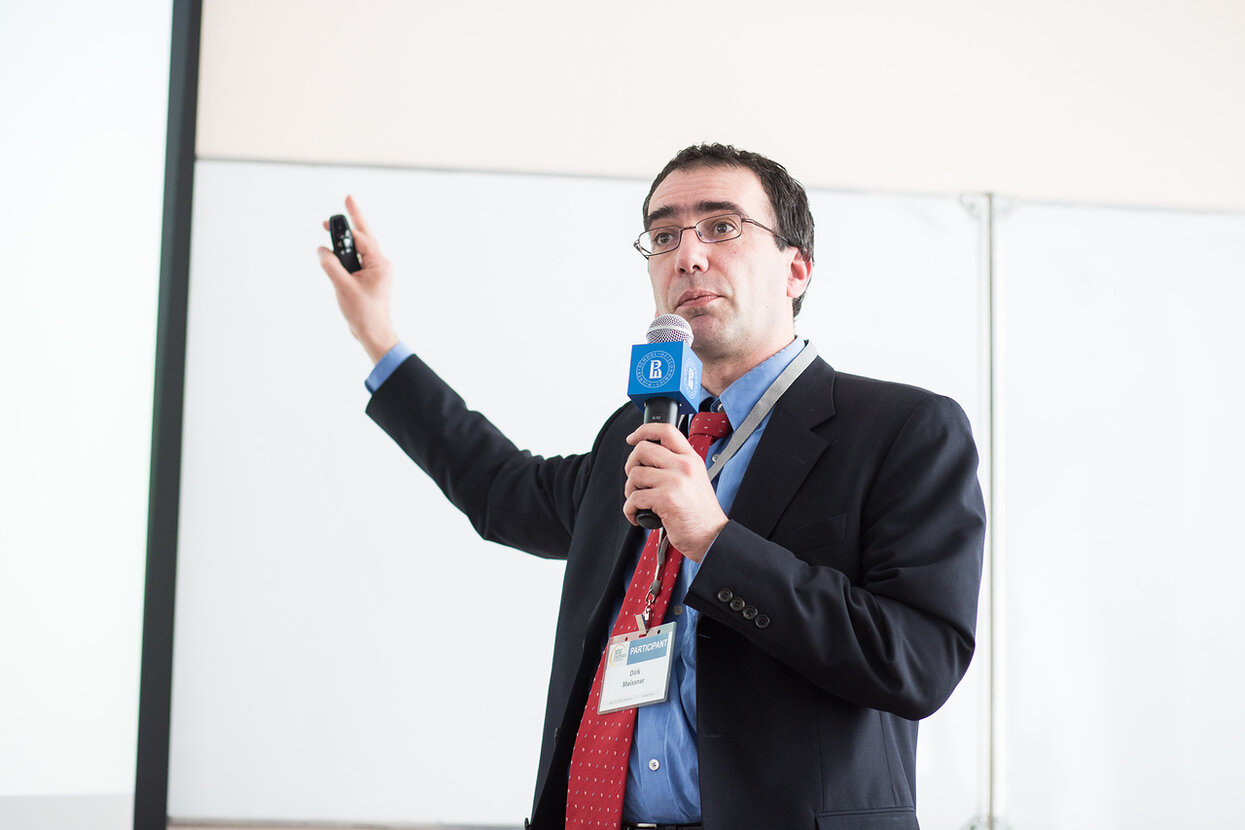Sustainability, Quality Innovation Culture, and Transition Economies Research at HSE University

Professor Dirk Meissner is Distinguished Professor, the Head of HSE ISSEK’s Laboratory for Economics of Innovation and the Academic Supervisor of the Master’s Programme in Governance of Science, Technology and Innovation. In this interview, he talks about the laboratory’s staff, upcoming research and conferences, and how the culture at ISSEK inspires creativity.
Professor Dirk Meissner
About the Lab
The Laboratory for Economics of Innovation was established in 2010 as one of the first international laboratories at HSE University. Our staff (20–30% of whom are foreigners) learn from each other and create joint papers. Our members are on the editorial boards of five or six journals. We are also very successful at delivering publications. We established a book series with Springer Publishing House that will be indexed in Scopus next year or the year after. It was our initiative to start a book series and we talked with our colleagues about how to do it.
We’ve made some progress in getting recognised in the academic community
In our academic community at least, HSE University is a brand. Not one as illustrious as Harvard of MTI, let’s be modest—it will take another 20 years to reach that level—but ten years ago, it seemed a rather strange place. We’re all very special people, maybe it seems strange from time to time, but show me any good university where people aren’t special or strange.
You have to be special and strange to find problems day after day and keep having fun doing it
Research Spectrum
We have a broad spectrum of research topics. We see this at most conferences, when people start asking us how we came up with such a wonderful (or crazy) idea, something that is not yet common or widespread.
I think our slogan should be: ‘Do crazy things—otherwise, we’re not a good university’
From our perspective, we try to do something that delivers value in time. We don’t start measuring the impact of something on society in the short term—one year or five—we have a longer perspective.
We are moving towards sustainability. It’s usually a term I don’t like—it’s a buzzword—but we make it different. When we talk about innovation, we say that sustainable innovation should take the full life cycle of a product or manufacturing process into account, but also include other components of the product, where you get these components from, and how you manufacture them.
We also study transition economies and transition societies. That’s another direction of ours that goes hand in hand with future trends in different research fields. These are frontiers of science which are useful to detect and learn about in order to build a strategy, whether it’s for a country or a company.
You can’t just issue a decree and change something, you need to get inside people’s minds and use different instruments to prepare them for big changes
Another topic we study is a quality innovation culture and climate: how you orchestrate a large organisation, how you motivate various people to be creative while implementing your ideas and delivering value to the organisation. It’s a wonderful cross-disciplinary topic that requires knowledge of psychology, neurology, management, economics etc.
Conferences

One important conference in our field of research is R&D Management Conference 2022, which will take place in Trento (Italy). It’s currently scheduled to take place offline, but you never know how things will go.
There is also the International Schumpeter Society meeting in summer (named after Austrian political economist Joseph Alois Schumpeter) in China. We also have strong relations with the IEEE (Institute of Electrical and Electronics Engineers), which is a global association. We had a joint conference at HSE University three years ago.
It’s a lot of work, but we are proud that we can host these events, bring people here and show them Moscow. It’s proof that we are accepted in the academic community
We think it’s good for universities to organise joint events and invite various institutions. We do this on purpose. Some people argue why we have so many partners, but it makes it easier for us to share our work, organise, and bring together groups with different images and reputations.
Working at ISSEK
ISSEK has a work climate where everybody accepts and respects the other. We do not hesitate to criticise each other, but we live by the golden rule of ‘when you find an issue and want to criticise something, suggest how to do it better.’ When we have something to discuss, we share our opinions. There is a kind of mutual inspiration that brings us together.
My usual workday starts in the early morning. This is the most creative time of the day, full of wonderful ideas. We discuss different projects our colleagues are doing, try to figure out who might be a good partner for preparing a joint publication, try to use our networks to find complementary sources and competences. We don’t want static brainstorming or strategy sessions.
We do things by living in a very flexible open environment, which I find very important for inspiration and motivating people to get some new ideas
We follow the principle ‘an idea is an idea—let’s try it.’ When I have an idea, nobody can tell me it’s a bad idea. The solution might be bad, but the idea itself… nobody knows if it’s good or bad. In scientific terms, let’s just be open and see what we can do with it or what we can make of it. And if we see no potential in it, then we just don’t do it.
When I travel to Germany and talk to German students, they often wonder why I live in Russia. The environment of mutual respect and trust inside the institute is one of the reasons why I’ve already spent 10 years in Moscow and have no intention of leaving.
Dirk Meissner
Head, Laboratory for Economics of Innovation

